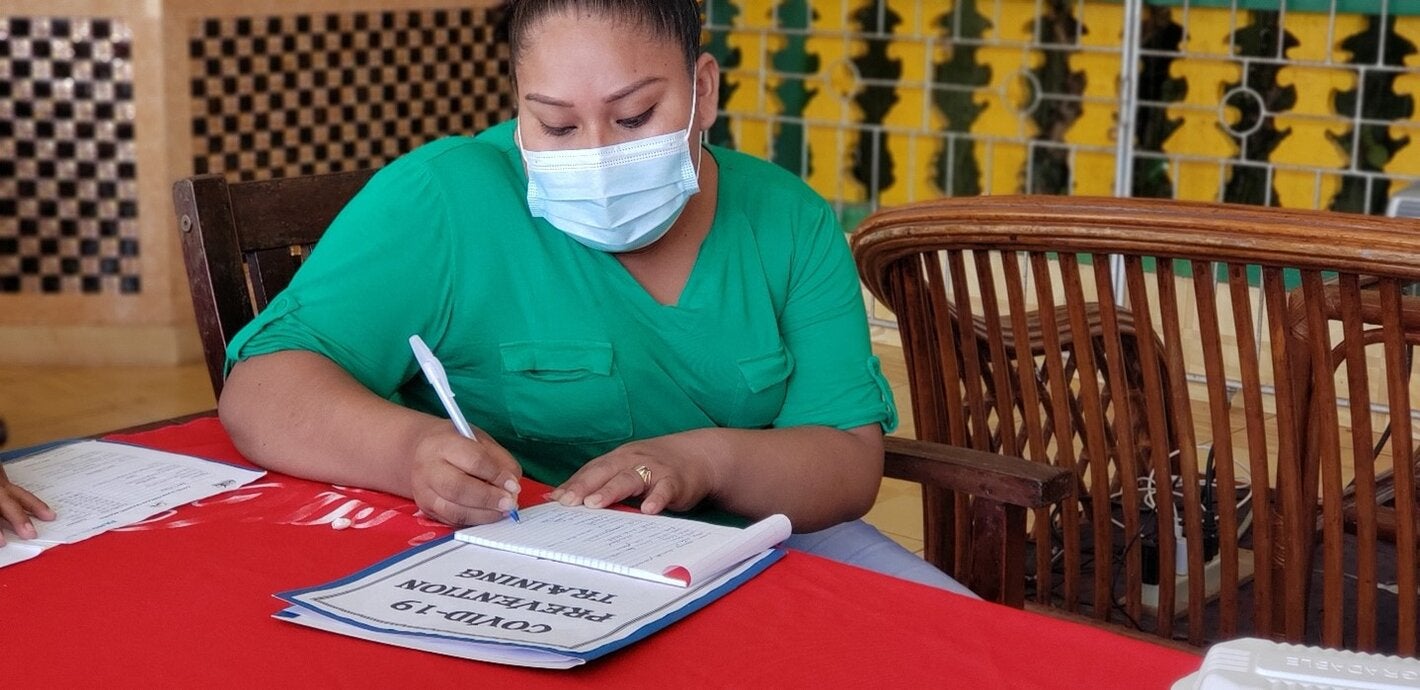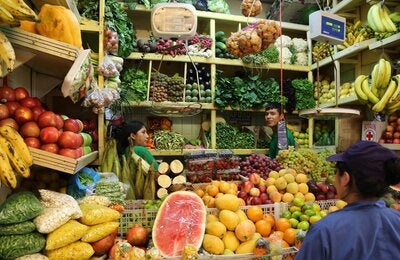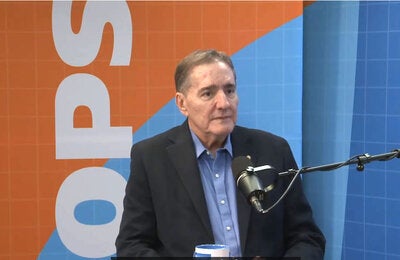
Georgetown 24 October 2021- PAHO/WHO, in collaboration with the Guyana National Youth Council (GNYC), conducted the COVID-19 preparedness and prevention training in the community of Mahdia, Region 8, with 25 young adults.
As part of the COVID-19 response and to support the “whole of society” approach to the pandemic, Guyana was selected to implement the COVID-19 Civil Society engagement initiative project to encourage more robust involvement of civil society and communities in the national pandemic response and recovery efforts.
The COVID-19 prevention training increased awareness among young persons in Mahdia. They were taught appropriate COVID-19 prevention strategies to become trainers to continue understanding this virus at the community level. Additionally, the training provided an opportunity for the local medical frontline workers to share data from a community level while allowing the newly trained individuals to understand what the available health services are being offered for young people in the community for better access and uptake. Likewise, the training sessions included topics such as Social Behavioural Change Communication and Mental Health, apart from COVID-19. So far, the Mahdia community has had 553 positive COVID-19 cases from the onset of the COVID-19 pandemic in 2020 to present day in 2021, with about13 active confirmed cases recorded and 5 deaths presently in the Region.
The participants learned about preventative measures to prevent and curb the spread of the virus, discussed information to change their negative behaviors towards COVID-19 and promised to share the knowledge gained with family and friends to help reduce the transmission of the virus. An observation from the training session by the technical team was some amount of hesitancy towards the uptake of the COVID-19 vaccination by the residents of the Region 8, Potaro Siparuni community and particularly the participants. However, after much information sharing and rebuttal of erroneous information by the team the participants were able to clarify their concerns and queries about the vaccines and have expressed positive feedback towards taking the vaccine.
Meshack Howard said “This COVID-19 training was very beneficial for me, I have gained a lot of information on the vaccines, so I am now equipped to go out and share my knowledge. I can now encourage others to take the vaccine. Also, this type of training needs to be given to other Amerindian communities, such as Campbelltown and North Pakarima, not only central Mahdia.
Mahdia is the Regional Administrative Centre of Region 8, which consists of a population of about four thousand two hundred (4,200) residents located near the center of the country. The town is mainly known for its gold and diamond operations which is the main economic activity. The Regional Administrative office manages this community. Mahdia has a mixed population which includes Amerindians. The main Amerindian tribes of this community include the Patamonas, an Indigenous Amerindian tribe. However, another group of people exists in the town, and they are called islanders. Islanders represent immigrants and their descendants from the Caribbean Islands. A regional town council manages this hinterland community, and its primary language is English. The nearby villages one can find near this community are Kangaruma and Orinduik.
Juliet Gouveia, who was one the participants from Campbelltown, Princeville village said, “I have learned so many things, especially on COVID-19 vaccines and how to prevent it, and how to go about telling people what to do in order to keep safe. I will now make up my mind to take the vaccine, and encourage my family, my friends and my neighbours to take the vaccine, since I now have all the information. I would like you guys to go to other parts of this region to do this same training in other communities, so that they will have the information and also take the vaccine.”
During the training, one of the healthcare workers suggested the development of Peer Educators and a School Health Club to continue the sharing of information in the community and schools.
PAHO will continue to support the region in providing technical support to combat this deadly virus and other health issues affecting the community.



